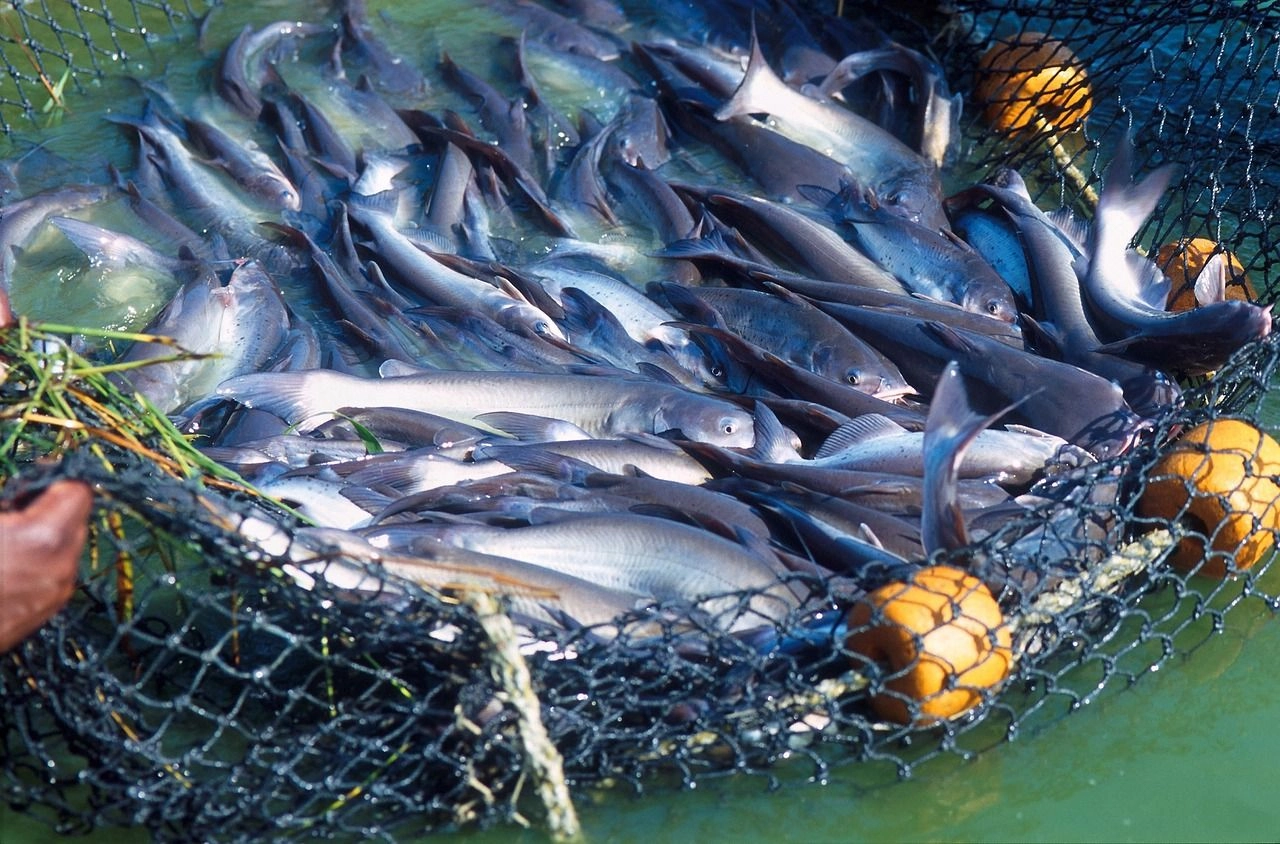The Department of Water Resources Aquaculture and Fisheries Technology is one of the programmes in the School of Agriculture and Agricultural Technology, Federal University of Technology Minna, Nigeria. The Department was established to provide a learning ground for high-level manpower development for the fisheries and Aquaculture subsector of the Agricultural Sector of the economy. This is achievable through unequaled service delivery in training, research, and community services that will add value to the challenges of food security in Nigeria, bridge the gap between supply and demand of fish and allied products in Nigeria’s economy and raise a nutritional status of an average Nigerian. The Department has well-trained and experienced lecturers, facilities, and functional linkages to achieve the vision and mission of the programme. The Department of Water Resources Aquaculture and Fisheries Technology got its first full accreditation in 1992 and ever since not lost it.

The Department of Water Resources Aquaculture and Fisheries Technology started as the Fisheries Technology Unit headed by Prof. S. L. Lamai of the Department of Animal Production in 1987. In view of her strength, the unit was later elaborated to become the Department of Animal Science and Fisheries on October 1, 1990. Each unit became independent in 1991 when the former Department was split into the Department of Animal Production and the Department of Fisheries Technology with Prof. F. D. Sikoki as the pioneer head of the Department.
The Department of Fisheries Technology became more elaborate with the full expression of the options; Fish Breeding and Genetics, Fish Nutrition, Hydrobiology, Fish Pathology, and Fish Post-harvest Technology. These areas have been strengthened regarding manpower and facilities to become units. Presently, degree programmes are offered up to PhD level in the areas of Fish Breeding and Genetics, Fish/Aquaculture Nutrition, Hydrobiology/Limnology, Fish Biology, Fish Postharvest Technology, Hydrobiology & Fisheries, Fish/Aquatic Toxicology, Aquaculture/ Fisheries Management.
The Department has strengthened its research activities through the National Agricultural Research Project (NARP) – 1997-1999, International Foundation for Science (IFS) research – 1997-1999, TETFund research grants, and the NUC-funded research. It has featured prominently in national and international exhibitions particularly the NUC Research and Development Fair of 2004, and being the Department that represented the only university that exhibited at the last Fish for All Summit of August 21-25, 2005. The Department also won the World Bank STEP-B Innovators of Tomorrow grant in 2010 among others.
The status of the Department has increased from one staff teaching fisheries courses at inception to 22 Academic staff; 14 domiciled in the Department, and 8 Adjunct staff serving the Department. We currently have 9 Professors, 3 Senior Lecturers, 1 Lecturer I, and 1 Lecturer II. The Department often receive Serving NYSC members posted to the University and deployed to serve as Graduate Assistants. The officers of the Department are Professor G.G. Bake (Head of Department), Dr. Y.U. Paiko (Exam. Officer), Mr. Jafar Yusuf (Assistant Exam. Officer), and Prof. A.M. Orire (Postgraduate Coordinator).
Vision
The Vision of the Department is to make the Department a centre of excellence in freshwater resources studies, research, and development, through a multi-disciplinary practical approach to research, training (impart knowledge) on the development, utilization, and conservation of fisheries resources
Mission
The Mission of the programme is to raise the creative capacities and capabilities of the students so as to enable them explore and effectively transform water and fisheries resources of their environment into high-quality goods and services.
Gabriel Gana Bake is a Fulbright scholar who holds a PhD degree in Applied Marine Technology (Aquaculture) from the Tokyo University of Marine Science and Technology, Japan. He has supervised over 100 undergraduates and postgraduate (5 PhD and 10 MTech) students. He has served as the Deputy Director of Disaster Risk Management Centre and Deputy Director of Collaboration, Affiliation, and Linkages, (DCAL) Federal University of Technology, Minna (FUT Minna), Nigeria. He is the current Head of the Department of Water Resources Aquaculture Fisheries and Technology. He was a Postdoctoral Research Fellow at the Department of Wildlife and Fisheries Sciences and Department of Entomology at Texas A&M University College Station USA and also served as an Associate supervisor at the Faculty of Biology and Chemistry International Studies in Aquatic Tropical Ecology (ISATEC) University of Bremen Germany. He has served as an External Examiner at several Universities/ Polytechnics in Nigeria and other foreign universities. He is a recipient of Monbukagakusho Japanese Government scholarship among others and also won several international research grants and received academic awards. He is a member of the Nigerian Fisheries Society (FISON), the Japanese Fisheries Society (JSFS), World Fisheries Society, World Aquaculture Society, and Association of Nigeria Inventors
Crop breeding is the art and science of changing and improving plants genetically. The art of breeding lies in the ability of the crop or plant breeder to observe plant differences which, may have economic value which include yield and number of pods per plant to mention a few.
Fish genetic breeding is a process that remolds heritable traits to obtain neotype and improved varieties. For the purpose of genetic improvement, researchers can select for desirable genetic traits, integrate a suite of traits from different donors, or alter the innate genetic traits of a species.